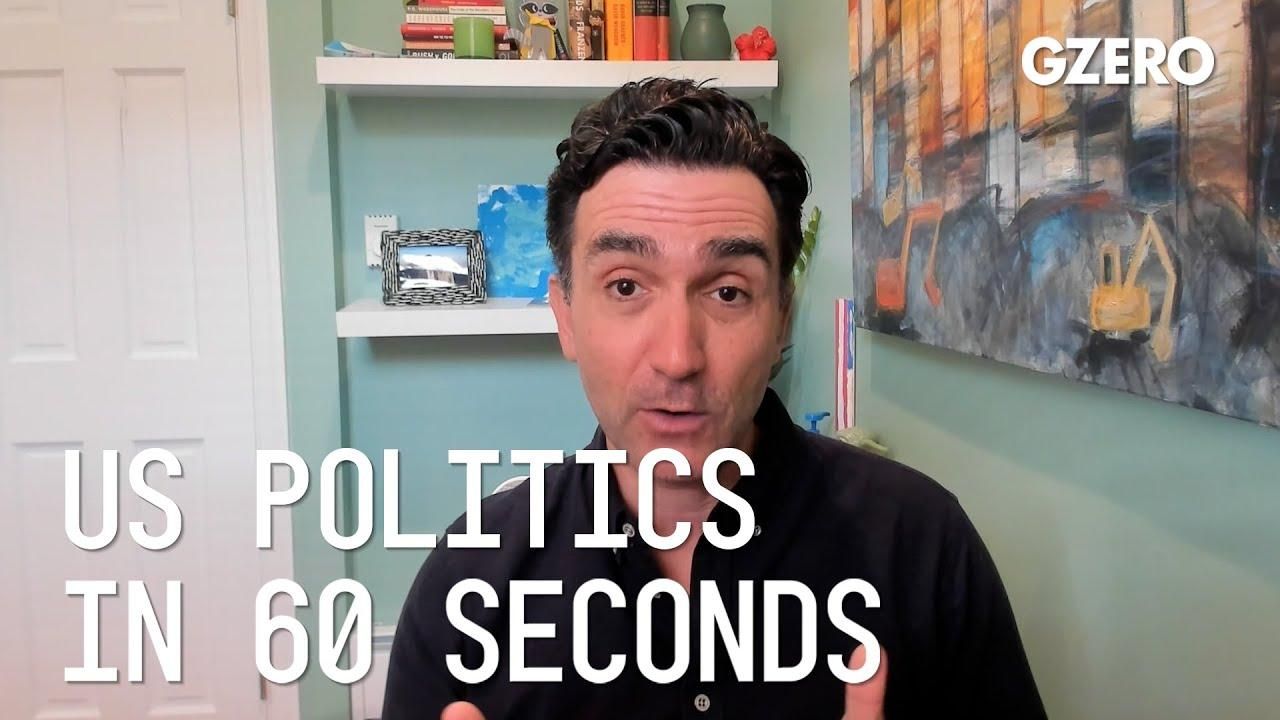US Politics In 60 Seconds
US voters think GOP can fix the economy, but can they? Not likely

US Voters Think GOP Can Fix Economy, But Can They? Not Likely | US Politics in :60 | GZERO Media

Jon Lieber, head of Eurasia Group's coverage of political and policy developments in Washington, DC shares his perspective on US politics.
What are the top issues for voters ahead of the 2022 midterm elections?
30 years since James Carville quipped that "it's the economy, stupid", which became the winning mantra for Bill Clinton's political campaign, it looks like the economy is once again the primary concern of US voters. There is way more public opinion polling than there was in 1992, and all of it shows that voters have one issue at the top of their mind, inflation. 49% of registered voters told Gallup that the economy is extremely important to their vote, the highest level during a midterm election since the middle of the financial crisis in 2010 when it hit 63%. Other polls show a similar trend with the economy dominating the pack among a diverse range of issues including abortion, crime, gun policy, and immigration.
What's notable about this are the large partisan splits in what voters care about. In the Gallup Poll, while 64% of Republicans and 47% of independents say the economy is the top issue, 51% of Democrats say abortion is, and 49% say climate change is, the two top issues for Democrats that aren't even in the top four for Republicans. This issue set seems to favor Republicans who are trusted by more voters to handle the economy, immigration, and crime. But there's a real question about what they'll be able to do about any of these issues when they are in power. The Biden administration has deferred to the Federal Reserve in the fight against inflation, taking some steps to reduce energy prices like releasing 180 million barrels of oil from the Strategic Petroleum Reserve. But there's very little will in Congress to help the Fed counter inflation by either cutting spending or raising taxes by enough to meaningfully move the needle on inflation next year. In fact, Congress is far more likely to increase spending in the lame duck session of Congress this year to compensate for the reduced purchasing power the federal government is seeing due to inflation. Which demonstrates how important it is that the Fed be given the political independence to ensure price stability, even if it results in job losses, which it hasn't yet.
All of this raises a question, what happened to abortion as a top issue? Abortion is still likely to motivate enough Democrats to show up and vote and potentially win a few House seats that they might have otherwise lost. Even 38% of independents tell Gallup that is extremely important to their vote this year. And the position being pushed by Republicans at the state level on abortion to ban all abortion, is supported by less than 20% of the population. Democrats are largely united about preserving access to abortion, so you should expect this to be a longer-term fight that will in part play out in Republican primaries going forward, as the party debates within itself whether it should moderate its restrictive stance on abortion that is out of line with public opinion. While this year the issue will help Democrats, it does not look like it will be enough to save the majorities.
At the 2026 World Economic Forum, GZERO's Tony Maciulis spoke with Matthew Blake, Managing Director at the World Economic Forum, about a defining transition for Davos and the state of the global economy.
5: The number of years South Korea’s ex-President Yoon Suk Yeol was sentenced in prison today, on charges related to his failed attempt to impose martial law last year.
The Russian president said little when the US seized Venezuelan strongman Nicolás Maduro, an ally of Moscow. But there might be a reason for his silence.